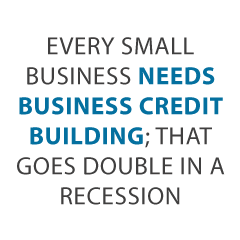Are there warning signs your business is failing in the decline of the economy? There could be. By knowing the signs you can take action and help keep things running even during the worst of time. Right now, the problem is COVID-19. The Federal government and state governments are working hard to help small businesses, but you can do something for yourself as well.
There are Warning Signs That Your Business is Failing in the Decline of the Economy, but What You Can Do About It
You can see the impending doom on the horizon. Its building like a sand storm and you can’t promise you will not be buried in it. The decline of the economy is inevitable, and you cannot promise your business will survive.
Our economy runs in cycles, with waves of good times and bad coming in like clockwork. The fact that a rise or decline will come is pretty much the only predictable part however. No one knows when the economy tide will change, only that it will. If things are good, you can bet eventually the decline of the economy will come.
If your business is to make it through the sandstorm of hard times, you have to know the warning signs.
You may think you are safe if your business is already established. While it is true that it is much harder for a new business to stay afloat during the decline of the economy, research shows that 50% of small businesses fail in the 5th year, and as many as 30% go belly up in the 10th year.
The news is depressing, but if you can spot the warning signs you have a fighting chance. You may not be able to stop the storm, but if you can see it coming, you can at least board up the windows and ride it out with as little damage as possible.
COVID-19 and the Decline of the Economy
The federal government is working to try to stem the tide of business failures. This includes SBA Paycheck Protection Program funding. But you’re going to need to be in business to take advantage of the financing.
How do you keep your business from failing? If you are already sinking, how do you reverse the damage? Sometimes you can’t. Sometimes the decline of the economy is too much. Don’t give up though. If you’re taking on water, we can help you do more than scoop it out with a plastic cup.
Set Yourself Up for Success
Wherever you are in the life of your business, now is the time to set yourself up for success. Don’t wait another day. In order to protect your personal finances and build business credit, you need to separate your business from yourself. Doing so on the front end is easiest, but many business owners do not know the importance of this when they first start.
Building business credit is vital for the survival of your business, and protecting your own personal liability is a necessity at all times. Here are some ways to make it happen:
- Incorporate as an LLC, S-corp, or corporation. Do not operate as a sole proprietor or partnership. If you do, you and your business appear to be one in the same.
- Get an EIN. They are free at irs.gov and act as an identifying number for your business, similar to your personal SSN.
- Open a business bank account. It should be used exclusively for business expenses. This is another tip that also helps at tax time.
- Go to the Dun & Bradstreet website and get a DUNS
- Make sure your business has its own telephone number and address that is not your personal telephone number and address.
- Have a professional website created that does not use a free service. The web address needs to be paid for, and you need a dedicated email address that uses the same URL as the website. It can’t be Yahoo or Gmail or some other free email service.
These things will help you not only when it comes to taxes and liability, but also when you are trying to establish and build business credit, which is essential for the growth of a business.
Prepare for the Unknown Known
While that sounds crazy at first, there really is an unknown known out there. The economy will take a dive. It is a fact of life just like birth and death. That is the known. The unknowns are the how, why, and when. How do you prepare for something like that? You cover all your bases.
Here are some things that can cause a business to go down during the decline of the economy along with some tips on how to prepare for them.
Cash Gap
Prepare for this by getting your business credit in order on the front end. Establish and build business credit so you can access the cash you need to bridge the gaps that are bound to show up. Setting up your business as a separate entity is the first step in the business credit building process.
Gaps happen for a variety of reasons. Sometimes they are temporary timing issues, and sometimes you are leaking cash faster than a dam with a hole in it. If your business credit is strong, you can access credit cards or a business line of credit to help you shore up the leak while you look for a more permanent fix.
Without a solid business credit foundation, you will have a hard time finding the cash you need to fill the shortage, even short-term. Without access to cash a business cannot survive.
Growing Too Fast
You have to start slow. If you dive in before you are ready, you’ll cramp up and never make it to the other side. Take things one step at a time and research everything before you take the leap. Want to expand? Make sure you can handle the financing. Want to open a new location? Double check demand to make sure it’s there.
Trying to grow too much too fast is a sure plan for disaster, especially if the economy is in decline.
You Don’t Have a Plan
You had to write a business plan to get a business loan in the beginning. Even if you were solely founded on the backs of investors, they probably wanted to see a plan. It should already be there, in writing. Use it!
Work the plan you started with, tweaking as needed. It was good enough to get you started, and with minor adjustments for growth, it should be good enough to keep you going even in a decline of the economy.
Working without a plan is like heading into the dust storm naked. If you survive, you will have much damage to repair.
Not Focusing on the Endgame
While branching out is a great thing in many cases, you can diversify too much. For example, if your specialty is pizza, and you want to add other entrees to the mix, that may be a great idea.
However, if you are a pizza shop and you decided to sell hunting equipment also, you may run into problems.
Find what you are good at and stick to it. Before you make any decisions on diversifying product lines, do the necessary research to determine whether or not that is the best plan of action. It may sound good in theory, but will it create profit? This is where good market research and a healthy dose of reality comes in handy.
Not Retaining Good Employees
If you have great employees, treat them right. Offer benefits, time off, fair payment, and appreciation as much as is in your power. Showing appreciation for a job well done is crucial to keeping good employees, and keeping good employees is vital to the success of a business. This is especially true in a decline of the economy. Starting over with new workers in hard times is not an easy task. Keeping the people that already know your business and do their jobs well is a much better recipe for success.
Is Your Business Failing in the Decline of the Economy?
Maybe it’s too late for prevention. Maybe you are already going down and you need a rescue plan. How do you know? What does it look like when a business starts to fail?
There are many warning signs, but these seem to be the most common.
- You consistently can’t pay your bills.
- Sales are steady but you have a ton of old receivables on the books.
- Inventory is too high.
- Your employees keep leaving.
- There’s no chatter about your business.
While these aren’t always bad signs, they usually are. It might not be too late though. Let’s look at each one and see what can be done.
Inability to Meet Financial Obligations
If you have that business credit foundation we mentioned before, you can buy yourself some time here. Figure out a way to pay now, or ask creditors for more time. Then set to work figuring out the problem. Is it a timing issue? Look at getting a credit card or line of credit to bridge that gap.
Are your customers not paying? We’ll hit that in a minute. Are sales simply lagging? Find a way to increase sales! Have a sale, work harder at marketing, and improve the quality of your product or service.
Collect on Old Receivables
First, sell old invoices. Invoice factoring is a great way to get some cash fast, and if this is why you are short, it’s a suitable temporary fix. Get those accounts off the books and the cash in the bank.
Then, reconsider your credit strategy. Do you need to offer an incentive for early payment? Does there need to be tighter regulations when it comes to extending credit?
Slow Inventory Turnover
What’s up? Did you order too much? Maybe you need to have a sale to clear some of it out. Do you have too many different types of inventory? Go back to your first love, your original product, and off load the rest at a deep discount if you need to.
Employees Keep Leaving
This one is hard to fix on the back end. They aren’t happy, and trying to make them happy after the fact is almost impossible. If you have good workers, show your appreciation. They have plenty of options when it comes to places to work. Increase pay where possible and warranted. Offer as much flexibility as you can. Most of all, just show appreciation. Courtesy goes a long way. It may not be too late.
There is No Word of Mouth
Word of mouth is a powerful thing. If you have no reviews and no recommendations, that is a bad sign. Try offering incentives to those willing to leave a review. They can send you a link to the review in exchange for a discount or trinket.
Create social media chatter in a similar way. Incentives to like, share, or retweet sometimes take off like wildfire.
Even better, hire someone who specializes in this type of publicity.
Sometimes it Really is Too Late
The fact is, once a business is already failing, it is sometimes too far gone to save it. If you see the warning signs early enough and take big enough action, you may be able to make it through a decline in the economy.
Stay Aware of Your Surroundings
Keep your eyes open. At the first sign of trouble, take action. Follow these tips, do your own research, and start working to save your business. It is yours to save. You can enlist others if you need to however. Consultants and specialists may be able to help, and certainly in many cases professionals such as accountants and those trained in marketing research can be of tremendous value.
The most important thing is to not stand by and watch. You may still become a statistic, but you don’t have to go
down without a fight. Prepare for the inevitable and be ready to act when they come.
Have an Armory of Weapons Ready for the Fight During the Decline of the Economy and Any Other Time
No one starts a business planning to fail, but if you do end up in trouble, you can at least give yourself a fighting chance during the decline of the economy. The best time to start is now. Establish your business as separate from yourself so you can begin to build strong business credit.
If your business does actually fail, remember those mistakes you made, learn your lessons well, and start anew. Your next business venture will only be stronger for what you learned on the last one.



